On February 1, 2013, Hiroshima University established two new programs: the “Distinguished Professors” (DP) program and the “Distinguished Researchers” (DR) program. Individuals who are part of these programs are recognized as senior and junior faculty members respectively, who are engaged in extraordinarily distinguished research activities.
A Conversation with Distinguished Researcher Jun Wasaki
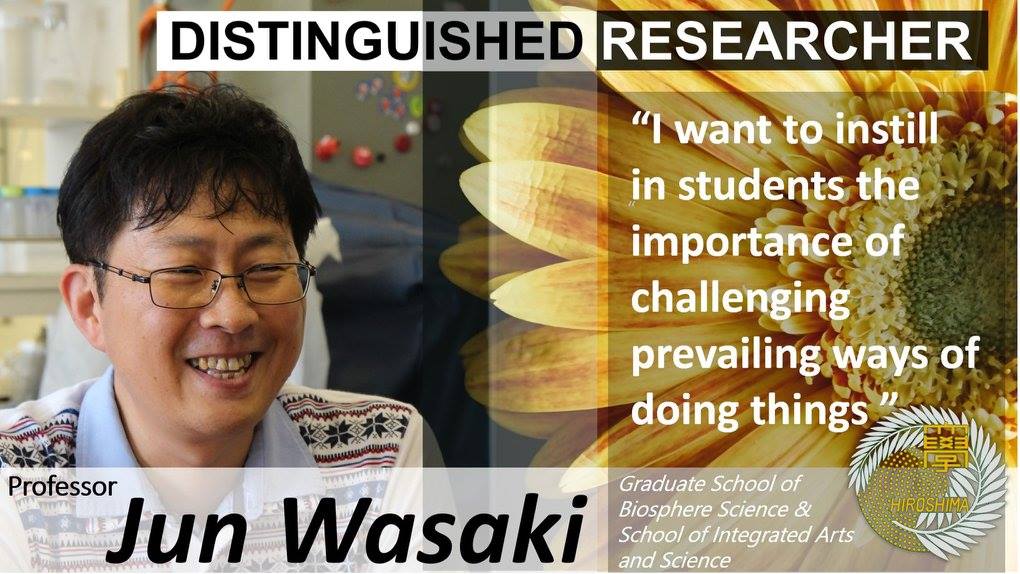
What is your name and specialist field?
My major fields are plant nutrition – and also soil microbiology.
What are you working on right now?
I'm focusing on phosphorous. Phosphorous is one of the major elements required for plant nutrition-but phosphorous sources are seriously depleted. Production of phosphorous-based fertilizer will peak in the next ten-20 years, after which it will decrease rapidly. However, phosphorous does still exist – it is accumulated in the soil where it has been applied, so I hope to find ways to efficiently utilize it.
How will you do this?
I need to focus on how plants function, in particular rhizosphere function. (The rhizosphere is the region of soil directly influenced by a plants root system via secretions and associated soil microorganisms). The absorption of phosphorous into roots is enabled by the release of exudate (a chemical compound containing enzymes and organic acids). It releases phosphorous which is chemically bound to particles in the soil and enables its absorption by the plant.
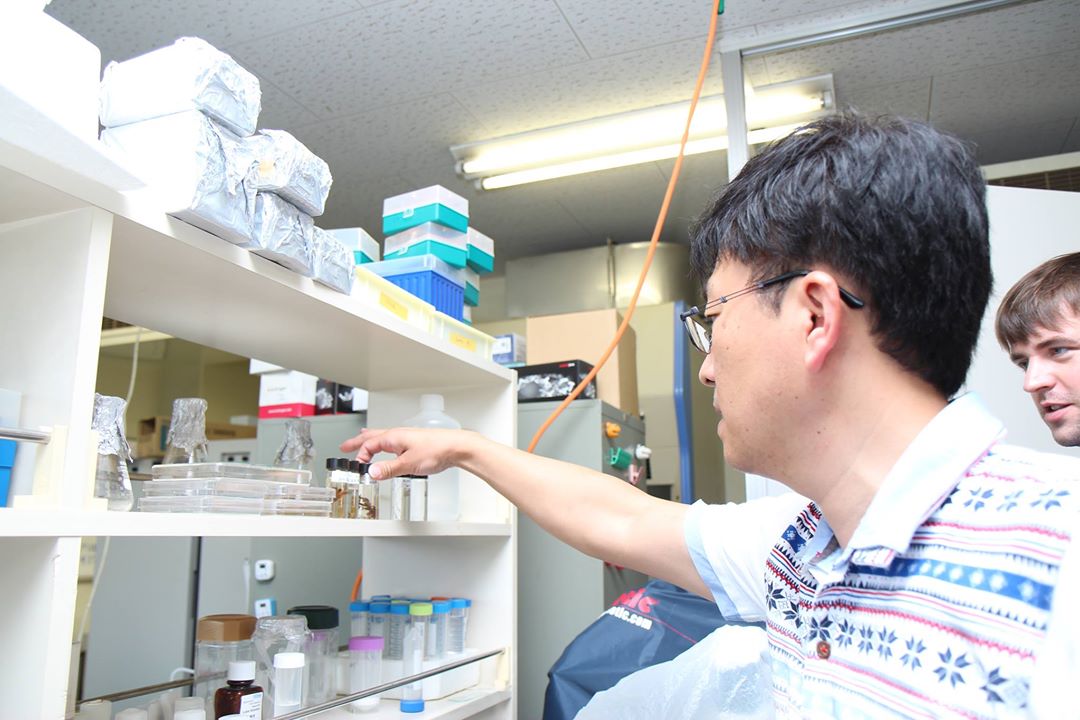
This process occurs naturally but it is inefficient, and while this is not usually a problem for plants in their natural environment, it is not possible to sustain modern agriculture without the constant addition of phosphorous-based fertilizers.
My aim is to increase the efficiency of phosphorous uptake in plants by understanding the natural processes and making necessary genetic modifications.
What in your career are you most proud of?
I found and isolated the gene that encodes for secreted acid phosphatase– an enzyme used by plants to release phosphorus from organic phosphorous in soils. I was the first in the world to do so! I searched for the gene in white lupin, a legume plant that grows very well when cultivated in infertile soil.Knowing of its ability to do so, I was curious how it achieved this. We focused on its production of acid phosphatase by studying the genetic makeup of its root. I isolated each gene and found a single one that encodes for this crucial enzyme! I then transferred this gene into tobacco plants which then also had the ability to grow well in poor soil. This proved that this beneficial property could be introduced into other plants.
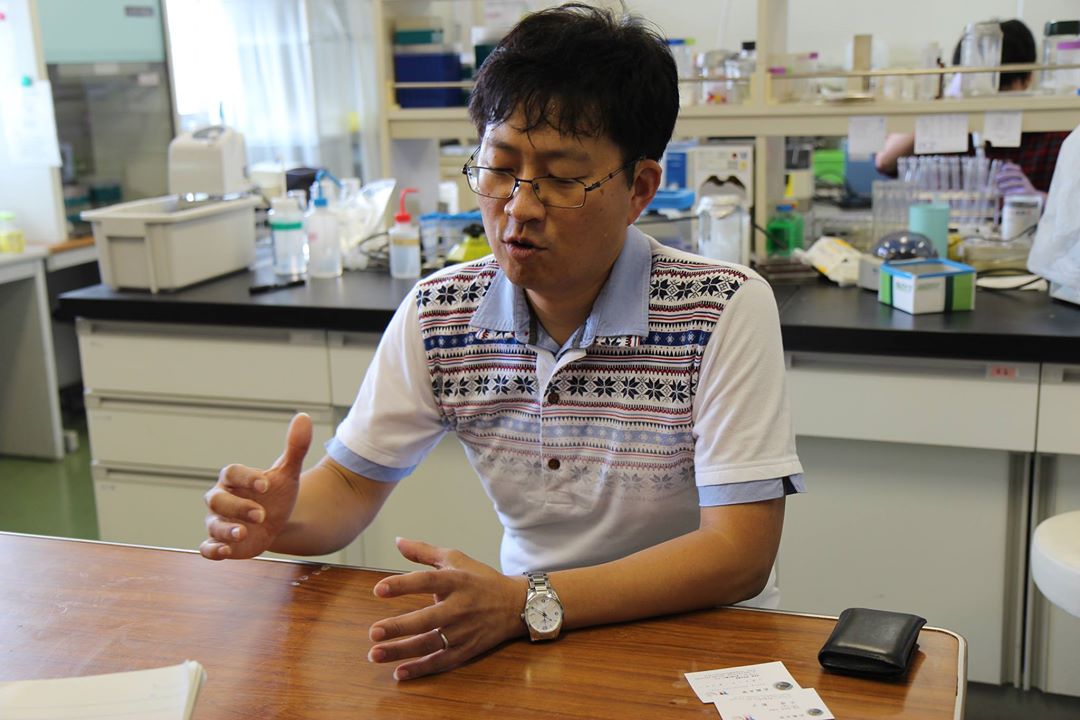
Why is your research important to society?
As phosphorous is a finite resource, its depletion is a major problem for the world. In Japan, its depletion is particularly problematic as there are no naturally occurring deposits here-we rely on imports. As I explained, important untapped deposits do in fact exist here in the soil-so for sustainability reasons it is important that we improve the potential for plants to utilize this.
Why is this research important to you?
Well, I really enjoy gardening. But, more than that, I believe this is a local problem and I am always telling colleagues and my students of the importance of realizing new findings by ourselves. Recently I have noticed that the students here are not dreaming big – it's a cultural problem. In Japan, there is a tendency not to try new things but to keep the status quo because it works. This is the path to mediocrity. I want to instill in them the importance of challenging prevailing ways of doing things through our research
Recently I have noticed that the students here are not dreaming big– it's a cultural problem. In Japan, there is a tendency not to try new things but to keep the status quo because it works. This is the path to mediocrity.
Can you tell me more about your gardening?
I like to grow crops. I don't have a garden of my own but I work the university field. This year I'm growing egg plants, corn, rice, sunflowers, tomatoes, as well as local Japanese crops. I change the planting each year as I use it to trial different phosphorous conditions. So it's not really a hobby… well it's half and half! I like fieldwork because sometimes I want to forget about office.
Is Hiroshima University a good environment for your work?
Ha, in this region the soil is not very good, it's hard – but the lab environment? Yes, I'm very happy here – I enjoy the research.
Can you tell me about your background?
I was born and spent my childhood in Chiba prefecture. It's quite close to Tokyo but I don't like the urban environment so I always had an urge to get away from that area. As a result I entered Shizuoka University about 200km from the capital.
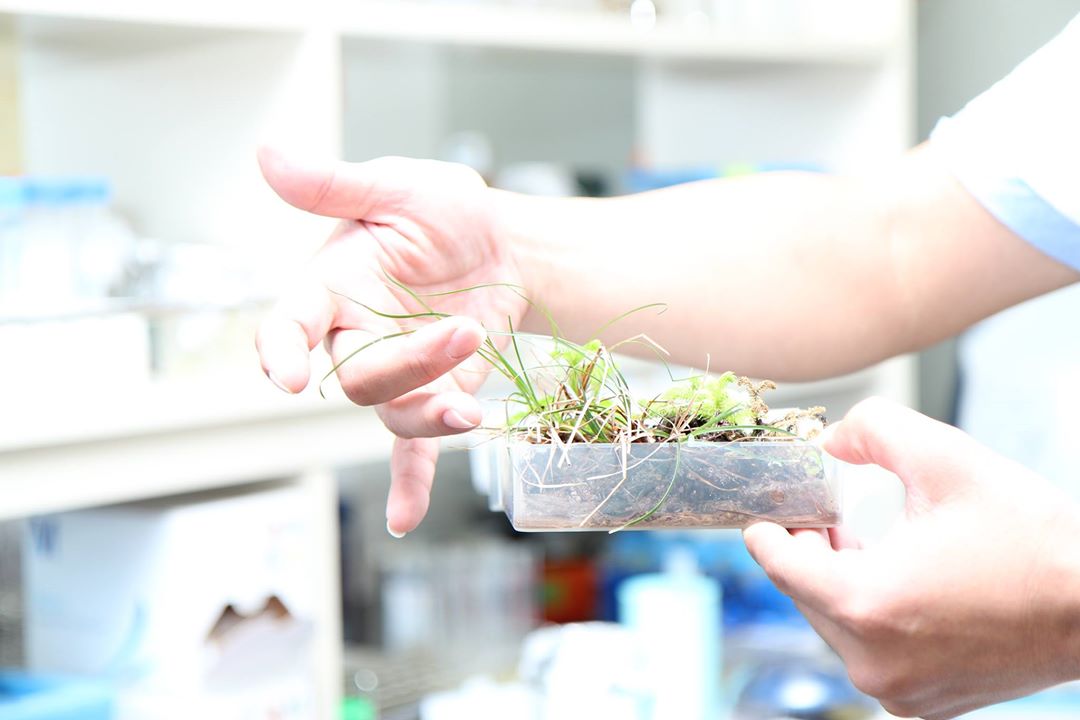
There I studied in the faculty of agriculture, and for my fourth year I studied plant nutrition-but my supervisor recommended I should move to a more prestigious university if I wanted to do higher quality research in the field. So, I sat the examination to enter Hokkaido University. Hokkaido is the most important agriculture area in Japan-to understand Japanese agriculture you need to understand Hokkaido.
How did you end up in Hiroshima?
I moved here ten years ago. My task when I came was to teach soil microbiology in our graduate school – but I am now involved in plant physiology as well, because of my knowledge on the rhizosphere. It is important to both these fields.
So you didn't grow up in the countryside?
A small town. My generation is part of the biggest population boom in Japanese history. So when I was young I witnessed my hometown grow from a small sleepy rural town-to something much more urban. I have spent my life trying to escape the onslaught of urbanization!
When not working, do you have hobby – other than gardening?
I like scuba diving-but not in Hiroshima! I like to go to southern sea, to Okinawa. I also like Palau, a small country near Philippines. I go once or twice a year.
Have you studied or worked abroad?
In 2003, I went to Germany to learn the methodology of the latest soil techniques – the microbiological structures. I was awarded a fund to stay there for 26 weeks and accepted into the University of Hohenheim in Stuttgart.
I studied soil microbiology but also collaborated with the plant nutrition lab. I learnt useful methodologies and I continue to collaborate with my professor and supervisor from there.
Would you recommend students spend some time studying abroad?
Yes of course. If students can find an opportunity to study overseas, they will obtain a new perspective, not only for their research field but also on life – on everything.
What's the best thing about working at HU?
I belong to the Graduate School of Biosphere Science; it’s a growing subject in the field of biology and within the school we can collaborate with professionals in other diverse fields. I have also joined the School of Integrated Arts and Science and this school also has a wide range of professionals, not only in biology but also in physics, and chemistry, social sciences and human sciences. This wide perspective is very helpful to me – it’s more interesting.
What do you like most about your job?
I like to share my experiences– and my enthusiasm with the students.
Is there anything you do not enjoy?
It's quite busy- I work too many long hours!
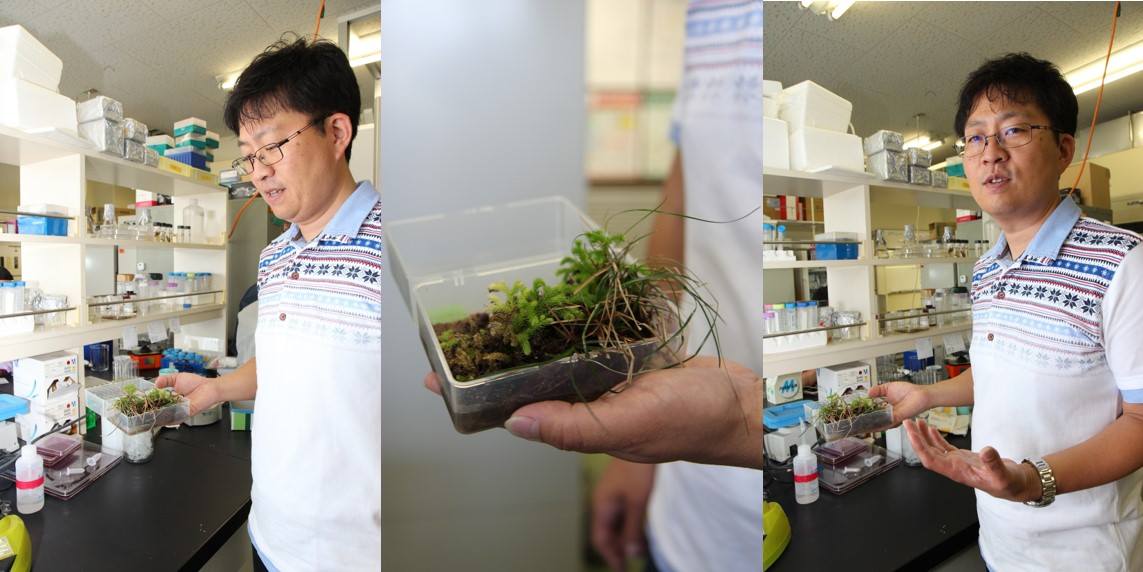
Is there a disconnect between scientists and society?
Yes. We need to put more effort into explaining our research topics so they are easier for society to understand and so we can get more funding. At the moment, we are seriously lacking in this area.
What do you hope to be doing in the future?
I hope to be carrying out good science with my students at Hiroshima University! I'm eager to study a new topic. There is a particular plant I am interested in that can grow comfortably in very acidic soil. The mechanisms that allow it to do This are still unknown. If I can resolve the mechanisms it will be new knowledge for the world.
In the future with competition for land, will agriculture increasingly be carried out indoors?
I think the outdoors will always be important. Growing indoors has a use, we can keep the produce clean and disease free-but sunshine is still important for a high yield. Creal crops in particular, most fruit, and animal cultivation all require the sun– You can't beat it.
Read more articles on Distinguished Professors / Researchers here
Written by Richard J. O'Connor (Hiroshima University Science Communication Fellow)
Find out more about Professor Jun Wasaki, and how to contact him, here: http://seeds.office.hiroshima-u.ac.jp/profile/en.c895d59038b8e15c520e17560c007669.html

 Home
Home